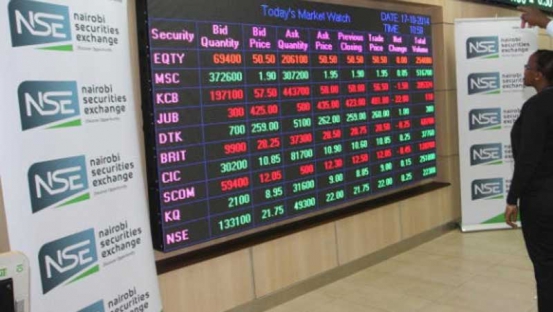×
The Standard e-Paper
Smart Minds Choose Us

The shilling and the Nairobi Securities Exchange (NSE) are defying the cyclic pre-election decline to post their best performances in months.
The NSE is on a recovery path from a two-year slump due to what analysts said was investors putting their money in the bourse as opposed to other more risky areas, with political temperatures rising ahead of next week’s polls.